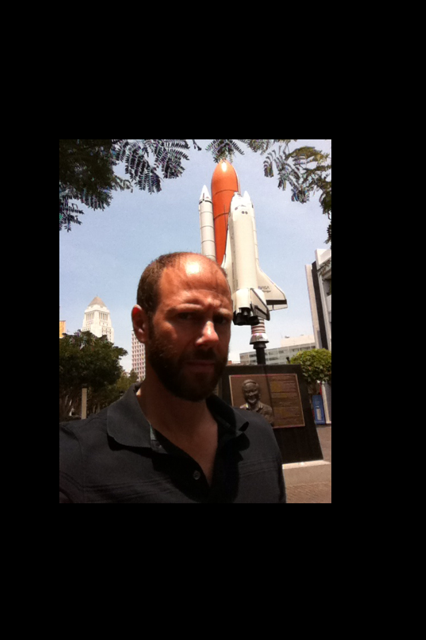published originally on CounterPunch
by wikipedia
A well-known, liberal economist was discussing the increasing
polarization of wealth in the US, the second anniversary of Occupy Wall
Street, and the minimum wage, among other issues, the other day on a
relatively popular radio program. In addition to his other remarks, the
economist (who once served as Labor Secretary) noted that when it is
adjusted for inflation the minimum wage is today lower than ever. He
also added that if the minimum wage were adjusted for productivity
levels, it would amount to something like $15 an hour in today's
dollars. Among other things, he suggested something that on first blush
sounds entirely reasonable, but on further reflection seems highly
problematic. For the economist suggested that, in general, economic
conditions would be markedly improved if fast food workers were to
receive an hourly wage of something like 15 dollars. Not only would more
people be able to afford a higher quality of life, he argued, but the
increased money in circulation would create even more jobs.
Yet
while such a wage raise would undoubtedly alleviate much short-term
misery, it would do little to correct deeply-rooted socioeconomic
problems in the long-term. For even if, for argument's sake, all fast
food workers received livable incomes, not only would there still be a
huge pool of unemployed and underemployed people in the world (even fast
food jobs are hard to come by these days), the production of meat,
according to a 2006 UN
report, is so harmful that it imperils the livability of the entire planet.
Not
only does the meat industry pose more of a harm to the planet's water,
air and soil than the automobile industry, its harms extend beyond the
general environment: the employees of the fast-food industry
systematically suffer occupational diseases; the people who consume, and
increasingly rely on, fast food for inexpensive nourishment suffer all
sorts of serious health problems as a result; and, of course, these
harms extend as well to all of the other animals slaughtered in the
process - not to mention the forests and ecosystems destroyed to create
pastures for raising animals. To be sure, rather than raising wages and
further "developing" the fast food industry, a sane political-economy
would work toward banning this ecocidal industry altogether.
Such
a suggestion will no doubt strike many as lying outside the bounds of
political reality. Yet, what makes such a statement seem so
unrealistic is less its practical content than an ideology that is
itself quite literally unmoored from reality - one that not only
mistakes a set of social conditions that are wholly contingent on all
sorts of historical and geographical variables for a natural and
necessary Order, but one that is downright ecocidal as well. Indeed, any
honest, critical, non-dogmatic assessment of our present and future
'Fukushima economy' must recognize that our vast technological knowhow
and our copious resources are hardly being employed in a sane or humane
manner. Rather than providing goods and services that people actually
need, more often than not our economy produces disposable, carcinogenic
garbage. From fast food and fracking, to automobiles and disposable
plastic bottles, without hyperbole the present political economy may be
said to spread more harm than good. Rather than wage increases, then,
and the creation of more toxic jobs (among the other reforms that do
little to ameliorate - and just as often exacerbate - our socio-economic
predicament) what we really ought to do is rethink our entire
political-economic system.
Before discussing a
minimum wage, or a maximum wage, we should ask the basic question: what
is the point of an economy in the first place? Is it to create jobs,
and to make money? Or are jobs merely incidental? Are they an end in
themselves? Or are they but a means to the creation of those
conditions necessary for human flourishing? One may even go so far as to
argue that an economy is only legitimate to the extent that it creates
such conditions; and that a society (especially one holding itself out
as a just society) has an actual duty of care to supply these conditions
directly. If one accepts the argument that a society has such a duty of
care, a society's failure to supply such conditions amounts to a breach
of this duty, and to a forfeiture of its legitimacy.
With
more and more people living in poverty, and most of the 99% of us
carrying unconscionable levels of debt; with the degradation of the
natural environment leading to epidemics of cancer and other preventable
diseases (not to mention other widespread injustices, like the
so-called "justice system" itself) it is not difficult to see that this
society has failed to satisfy this duty of care. Nor is it difficult to
see that this political-economy's march along its ecocidal path is
precluding the possibility of satisfying such conditions in the future.
As
we discuss the two year anniversary of Occupy Wall Street -
as collective wealth in the form of forests, and minerals, and schools,
among other parts of the public sphere, are further privatized and given
to businesses to "develop" - and as a 1,000 year flood submerges
portions of Colorado as a result of these antisocial policies - we must
recognize that though it may be important to support efforts to secure
livable incomes for all, we must also recognize that increases in mere
"purchasing power" (as opposed to a meaningful, truly egalitarian
redistribution of political power and resources) only contributes
further to our toxic Fukushima political-economy.





